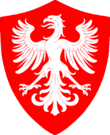Socialist Question (Seketan)
 |
|---|
| This article is part of a series on the politics and government of Seketan |
The Socialist Question is a Seketese political paradox surrounding the left-wing Socialist Party and Seketan post the 1978 Seketese Revolution. It was first described in political scientist Simeon Braja's 2000 book The Socialist Question: Authoritarian rule after the Kjedorates, published soon after the 1999 Seketese election which had resulted in the defeat of the short-lived James Marksonn Conservative government. In his book, Braja poised that despite the fall of Seketan's authoritarian Kjedorate regime in 1978, the unbroken electoral success of the Socialists from 1978-1996, plus their quick parliamentary toppling of Marksonn's government, raised questions about whether they had just become a new Kjeodrate regime.
Today, Braja's theory has been largely disproven by the wider Seketese political science community and the electoral success of opposition parties at the state and national levels. The "question" was widely viewed as resolved after the National Conservatives under Tomas Serdoa won three elections in a row, 2005, 2006, and 2010. Despite the Socialists returning to power between 2014-2021, the victory of the anti-establishment party Our Revolution in 2021 has been viewed by political commentators as finally putting an end to the "question".
Background
Seketan has a long history of authoritarian and single party rule. Like many European nations, it was originally born as a feudal monarchy in the 11th century, eventually becoming a semi-absolute monarchy with a largely toothless legislature by the 18th century. The Kingdom was absorbed into the Nelbec Empire in the late 1800s, with its legislative Hérvynsken earning more powers under the empire, though still remaining largely under the thumb of the Nelbec Emporer. Seketese language and cultural rights were largely respected under the Empire, with the language of day-to-day politics being in Seketese. Minority & non-Nelbec languages and cultures like Fjeskan and Trjebian were suppressed by the imperial system. An Imperial decree in 1902 permitted only the use of Nelbec languages (Alquiyan, Seketese, and Wilsk) in public life. With the outbreak of World War 1 the imperial government cracked down hard on anti-war and anti-government speech to promote the war effort.